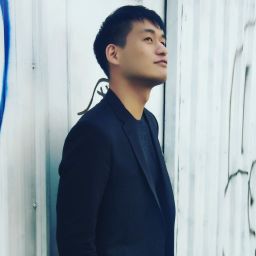Editor’s Note: Kuan-lin F. Liu is a third-culture Taiwanese writer, who focuses on issues of race and gender. Connect with him on LinkedIn. The views expressed in this commentary are his own. View more opinion at CNN.
Last week, Fox News host Tucker Carlson condemned the practice of wearing face masks in public and those who do it in a monologue that has since gone viral. On his show, the host called mask-wearing unscientific, repulsive and even abusive when children are mandated to wear them.
Carlson’s framing – that the only people who voluntarily wear masks are “zealots and neurotics” – puts a precarious label and thus a target on anyone who chooses to wear one either now or in the future. This could prove dangerous to members of the Asian and Asian American communities who, even before Covid, have been used to wearing masks for different reasons, and could potentially subject them to the same harassment and attacks they faced at the beginning of the pandemic.

Although anti-Asian violence escalated in the year since the start of the pandemic – with over 3,700 incidents reported across the US, according to Stop AAPI Hate – at the beginning of the Covid-19 global crisis there were healthy discussions and thoughtful articles about face masks and why they have historically been widely adopted in Asia.
One reason for the wide acceptance of mask-wearing in Asia is the SARS crisis between 2002 and 2004, which hit several places, such as Hong Kong, extremely hard. With SARS in recent memory, many in Asia understand how helpful masks can be in helping contain a deadly disease.
Personally, I saw a change in my Western colleagues’ thinking about face masks as the World Health Organization and the US Centers for Disease Control and Prevention attested to the role they can play in slowing the spread of the virus.
I was working at the Hong Kong branch of an American firm in the early days of Covid-19 when Western countries were only beginning to record cases. Those of us who were used to wearing face masks had been wearing them in the office since late January when news of a pneumonia-like illness in China broke.
As cases in Hong Kong rose, but working from home was not yet an option, we often felt uneasy when a colleague seated near us would show symptoms of a cold but move through the workday barefaced. We found it difficult to bring up the topic of wearing a mask to our peers, not to mention our superiors, without coming across as rude, imposing or even paranoid. I even wrote a piece, that I never published, on how to ask my colleague to wear a mask because his loud sneezes and nose blowing were becoming alarming.
A few months later, when Covid-19 was declared a pandemic, and guidelines on prevention were plastered all over news outlets and social media, things changed.
The emphasis on how face masks can prevent the spread of the virus by asymptomatic carriers made my colleagues realize that all along we had been wearing masks not only to keep from getting sick but to keep others from getting sick. As historian Emma Teng so aptly put it, wearing a mask for many from East Asian countries is about public-spiritedness – “doing something for the community good is good for me, also.”
Teng and others like her who have commented on the culture of mask-wearing in Asia contributed to the discussion by pointing out the many other reasons we may choose to wear masks. We may do so when we feel under the weather, when there is too much pollution in the air or even when we have a blemish we would like to cover.
These discussions make clear that culture and familiarity with the face mask have as much, if not more, to do with why people either embrace or reject the practice as does science.
When there is no mandate in place, wearing a mask is a personal choice that one makes about one’s health, comfort or appearance. As such, insisting someone remove their mask because it makes you uncomfortable is as odd and offensive as asking a stranger to remove their hat, sunglasses or scarf. All of these items may conceal a large portion of someone’s face, yet people have not raised concerns about how they may interfere with fostering human contact.
The contentious debates that have resurfaced on social media since Carlson’s comments, with some also urging people to de-mask, reveals that some people have not changed their negative attitudes toward face masks. At this point, after going through a whole pandemic, these people probably dislike it even more.
I, too, understand the burden of trying to have a conversation with a face mask on or even hiking while masked. However, beyond the pandemic, it is the prerogative of mask-averse people to opt not to wear them if they can do so safely just like it is my prerogative, and that of my like-minded peers, to use a mask in everyday life when we see fit.
With anti-Asian attacks making headlines almost every week this year, I worry for my family, friends and all members of the Asian and Asian American communities in the US who may have to once again choose between safety and stigma in a time when the threat of the pandemic is not completely extinguished.
Covid has been rough for all of us, but to come out of it stronger, we need to hold onto the lessons we have learned, especially about health and hygiene, Sinophobia, xenophobia and scapegoating. We cannot go back to a pre-Covid mentality where face masks were a concern and those who opted to wear one were attacked.

